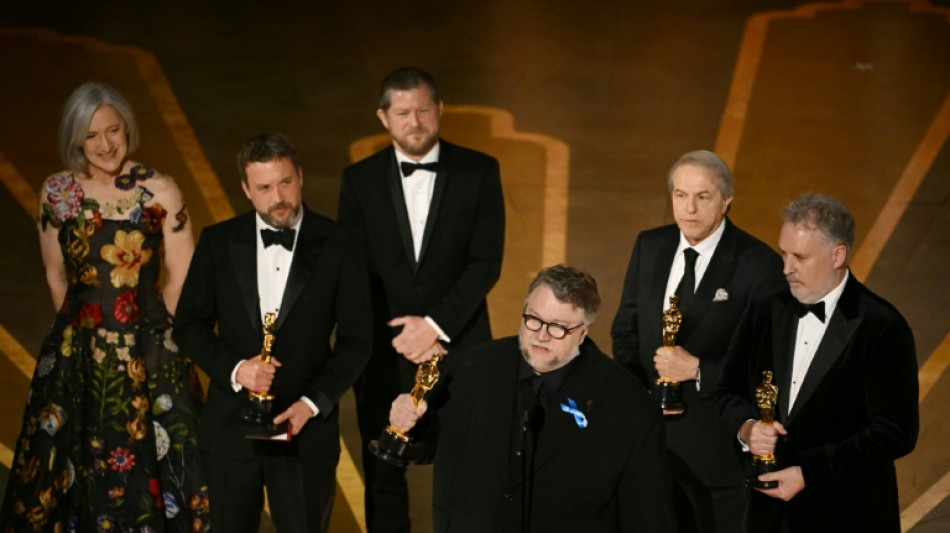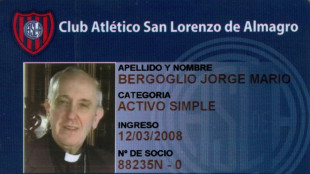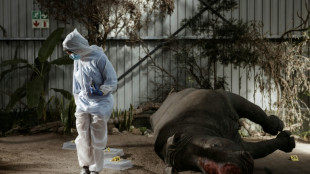

'Guillermo del Toro's Pinocchio' wins best animated film Oscar
"Guillermo del Toro's Pinocchio," a strikingly dark take on the beloved children's book about an exuberant living puppet and his elderly wood-carver father, won best animated feature at the Academy Awards on Sunday.
In an Oscars category usually dominated by lighter, family-friendly fare, Mexican director del Toro triumphed with his macabre reimagining of Pinocchio's adventures, now set in 1930s Italy.
The movie -- tackling fascism, war and grief -- is also wildly different in tone from Disney's classic "Pinocchio" adaptation, but its ambitious themes and stunning use of stop-motion animation won over Academy voters.
"Animation is ready to be taken to the next step. We are all ready for it. Please help us. Keep animation in the conversation," del Toro told the Oscars audience.
In the film, Geppetto, still mourning the loss of his only son decades earlier, carves a wooden puppet that suddenly springs to life.
Despite the best efforts of his conscientious insect friend Sebastian J. Cricket (voiced by Ewan McGregor), Pinocchio is tricked into running away with an evil circus master (Christopher Waltz).
As Geppetto and Sebastian set off in pursuit, Pinocchio is conscripted into a fascist boot camp, battles a gruesome sea beast, travels to and from the afterlife, and even comes face-to-face with Italian dictator Benito Mussolini himself.
A starry voice cast also includes Cate Blanchett, John Turturro and Tilda Swinton.
The project had long been a dream of del Toro's. But his efforts to get the film made were met with rejection and frustration for around a decade, before deep-pocketed streaming giant Netflix came on board in 2018.
"I've been fighting to make it for half my career," del Toro told AFP.
Del Toro consistently told studios he was "not making a movie for kids, but kids can watch it" -- something he has since admitted was an unlikely and difficult sales pitch to make to money-minded Hollywood.
He chose the era of military salutes, strict conformity and violent machismo-- a "moment in which behaving like a puppet was a good thing" -- to emphasize Pinocchio's own disobedient nature.
"I wanted Pinocchio, who was the only puppet, to not act like a puppet. I thought, thematically, that was perfect," he said.
Del Toro has previously used his distinctive Gothic fairy tales to tackle the specter of fascism with films such as "Pan's Labyrinth" and "The Devil's Backbone," both set in Franco-era Spain.
- 'Kaleidoscopic' -
Adding to the film's inherent complexity and expense, it required more than 1,000 days of filming.
The movie uses the painstaking method of stop-motion animation, in which puppets are carefully manipulated frame-by-frame to create the illusion of movement.
For del Toro, using computer-generated imagery -- like Disney's own recent live-action remake of its previous, seminal 1940 animation -- was never an option.
"It was very pertinent for me to make a story about a puppet with puppets, and the puppets believe they are not puppets," he told AFP.
"It is a very beautiful sort of kaleidoscopic, telescoping thing."
While del Toro has long been fascinated by animation, he won his Oscars for best director and best picture with 2017's live-action "The Shape of Water," and "Pinocchio" marks his first animated feature film.
The film represents del Toro's bid to prove to voters and audiences in North America what has been known in many other places for decades -- that animation is not just for kids.
- 'My mother' -
While the story explores father-son bonds, del Toro became fascinated with the character of Pinocchio as a child when he was introduced to the mischievous marionette by his mother, with whom he was extremely close.
"I'd collect artifacts from 'Pinocchio'... My mother and I saw it together when I was very young, and she kept giving me Pinocchios all through my life," he recalled.
She died in October -- just one day before the film's world premiere in London. Del Toro told the audience there that they were about to watch "a film that bonded me with my mom for an entire life."
In winning the Oscar, the movie saw off "Marcel the Shell with Shoes On," "Puss in Boots: The Last Wish," "The Sea Beast" and "Turning Red."
P.Russo--IM



